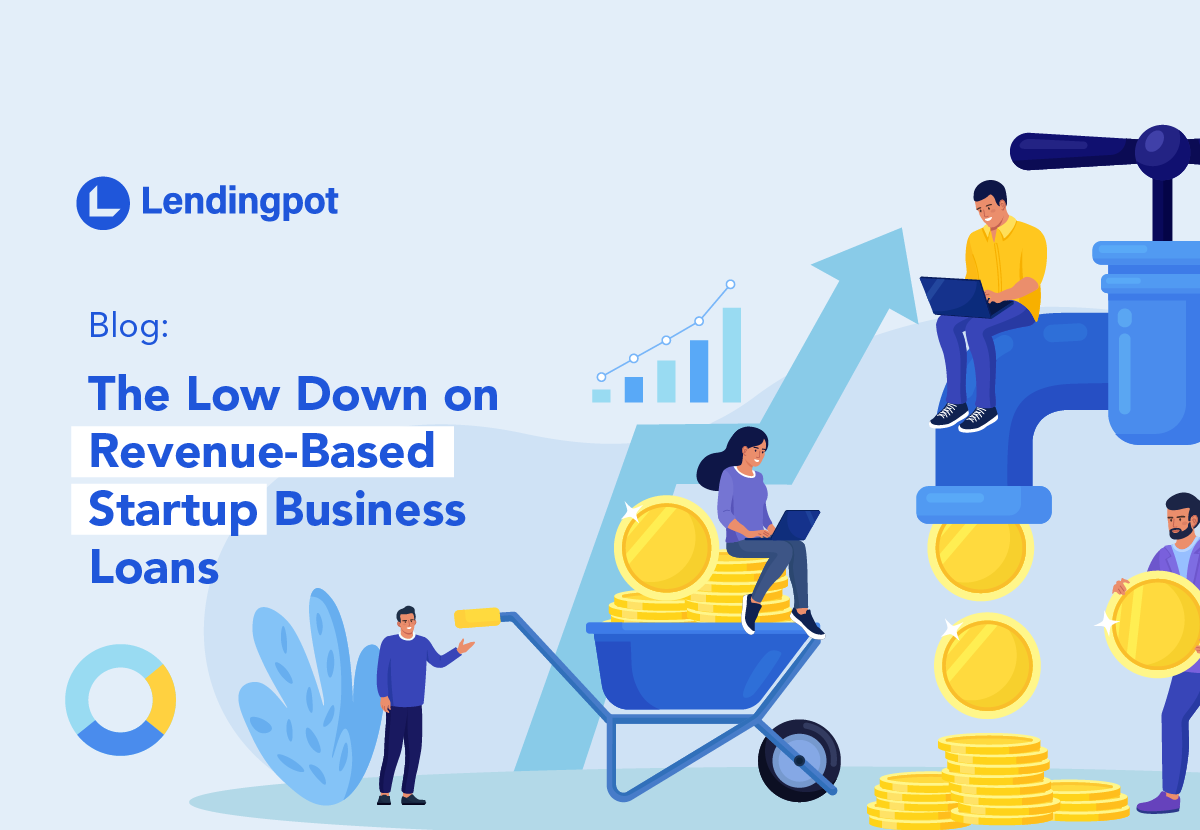
You’re an entrepreneur with a dream. You’ve considered taking a traditional term loan to fund your start-up, but the thought of having to repay a fixed monthly commitment each month concerns you, because your revenue, as is common for startups, is inconsistent.
Thankfully, there’s a type of business loan that offers a more flexible repayment structure: revenue-based financing. Here’s the low down on revenue-based startup business loans and the advantages it can offer startup enterprises.
Revenue-based financing, sometimes called royalty-based business financing, is an alternative to conventional small business loans. The main difference is that with revenue-based financing, you borrow a lump sum of money, but monthly repayments are a fixed percentage of your monthly revenue.
In short, you repay less if your monthly revenue is low and more if you make more income for a specific month. Unlike term loans, you don’t have to meet a fixed amount of monthly repayments, as your repayments fluctuate according to your company income.
Read More: A Beginner's Guide to Startup Business Loans in Singapore
1. No Need to Surrender Equity
Startup entrepreneurs sometimes have to make onerous sacrifices to obtain funding. Especially from venture capitalists and angel investors, it usually involves a certain amount of equity (a portion of business ownership) which can lead to a loss of control over the company’s direction and operations.
With revenue-based business loans, you maintain full autonomy and control over your business, never having to surrender equity to the investors. You’ll have the freedom to determine your business direction without the need for dilution of control or risking losing a seat on the board.
2. Loan Approval Based on Revenue Records
Unlike traditional banks that rely on financials, revenue based loans are approved based off past revenue records. These can be on your bank statements, e-commerce platforms, or even wallets. With revenue-based financing, all you need to provide is access to your sales records, which should show some form of consistency or growth.
Read More: Banks vs Moneylenders in SME Business Financing
3. Faster Approvals for Startups
Obtaining startup funding can be a tedious process, especially if you have to go through the conventional venture capital process which requires pitching your business idea to various investors and waiting up to a few months for their decision. This takes a lot of time, effort and resources that not all entrepreneurs have. A revenue-based funder can usually make their decision known much faster, as the funding model doesn’t involve equity and investment.
Revenue-based financing is typically provided by private lenders or business investment firms. The lenders that have agreed to provide you with financing will usually reach out to you for a meeting, at which you will agree to a funding amount and a repayment cap.
A repayment cap is the total amount you will need to repay the lenders, typically from about 1.2X to 3X the funding amount. To calculate the repayment cap, you will need to multiply the repayment cap value with your funding amount.
The funding amount you can look forward to depends on your lender. At Lendingpot, you can expect lenders who will offer up to 3X your monthly business revenue.
The final condition you will need to agree upon is a remit rate, which is the percentage of your monthly revenue that will go towards monthly repayment. The amount varies across lenders, but you can expect it to range from 1%-25% in general. Unlike conventional loans, there is usually no loan tenor, and you will continue to make repayments until your repayment cap is met.
Revenue financing is an alternative funding model that’s versatile, simplified in both application and approval, and an ideal way to acquire funding without ceding control over your business.
Ready to get started? At Lendingpot, we offer access to competitive business loans from more than 45 lending partners, including revenue-based funding. Sign up with your Singpass Myinfo or Mybusiness today and let us help you take your business to greater heights.


Benjamin heads up Lendingpot with a background in all things SME. He was previously a commercial banker at Citi with experience in Relationship management, Credit Risk, Trade Operations and Corporate FX sales; and understands the difficulties SMEs face in this opaque world of SME financing.